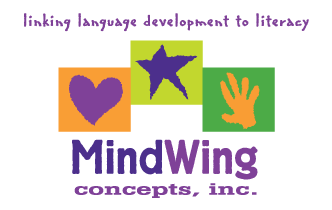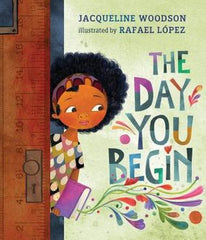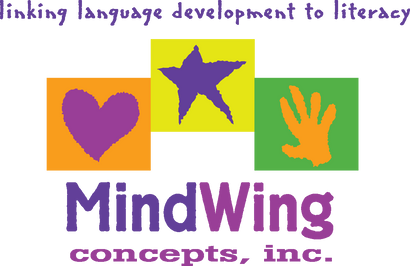Secure Checkout. FREE SHIPPING for Continental U.S. Orders over $60.
Menu
-
- Home
-
About Us
-
The Approach
-
Linking Language & Literacy
-
MindWing Learning
-
Learning Resources
-
SHOP
-
Blog
-
- About MindWing
- Our People
- Contact Us
- Your Account
- Login
-
United States (USD $)

Secure Checkout. FREE SHIPPING for Continental U.S. Orders over $60.

“Maui” of Disney’s Moana: Using Story Grammar Marker® with Legends
September 27, 2019
 In this blog post, we share with you a children’s book called Maui Hooks the Islands with a narrative analysis, a legend written in 1700 AD, a Disney Moana song, and lesson ideas that we showed at our workshop participants in Hawai'i. The first couple of weeks of September marked the third time that Maryellen and I have traveled to Hawai’i to provide professional development for Speech-Language Pathologists, pre-K, Kindergarten, and First Grade teachers and special educators in the Hawai'i State Department of Education. Through these experiences, we have grown to love the rich culture, breathtaking landscapes, water and sunsets, and especially, the people of Hawai'i. My 5-year-old daughter Casey has made each trip to Hawai’i with us, and the first time we came, she was enthralled with Disney’s Moana (hoping to meet her in person!). In order to kick off our workshops, we wanted to learn more about the Polynesian culture that this movie depicts...
In this blog post, we share with you a children’s book called Maui Hooks the Islands with a narrative analysis, a legend written in 1700 AD, a Disney Moana song, and lesson ideas that we showed at our workshop participants in Hawai'i. The first couple of weeks of September marked the third time that Maryellen and I have traveled to Hawai’i to provide professional development for Speech-Language Pathologists, pre-K, Kindergarten, and First Grade teachers and special educators in the Hawai'i State Department of Education. Through these experiences, we have grown to love the rich culture, breathtaking landscapes, water and sunsets, and especially, the people of Hawai'i. My 5-year-old daughter Casey has made each trip to Hawai’i with us, and the first time we came, she was enthralled with Disney’s Moana (hoping to meet her in person!). In order to kick off our workshops, we wanted to learn more about the Polynesian culture that this movie depicts...

When No One There Is Like You: Exploring Feelings & “Belonging” with SGM
August 21, 2019
 The Day You Begin, by Jacqueline Woodson and illustrated by Rafael Lopez, is a beautiful, nonlinear story to share with children, especially at the beginning of the school year. It encourages children to think about their feelings when entering new situations and creates an opportunity for teachers to provide a discussion with and to show support of children in such situations. Before sharing the selection, take a look at the following links for background information. This book is actually a story of a girl named Angelina, included with examples and guiding suggestions for fitting in, with which all of us can identify. Included below is also a link to the illustrator’s website, Rafael Lopez, discussing the development of the artwork for this book, which older students would find interesting...
The Day You Begin, by Jacqueline Woodson and illustrated by Rafael Lopez, is a beautiful, nonlinear story to share with children, especially at the beginning of the school year. It encourages children to think about their feelings when entering new situations and creates an opportunity for teachers to provide a discussion with and to show support of children in such situations. Before sharing the selection, take a look at the following links for background information. This book is actually a story of a girl named Angelina, included with examples and guiding suggestions for fitting in, with which all of us can identify. Included below is also a link to the illustrator’s website, Rafael Lopez, discussing the development of the artwork for this book, which older students would find interesting...

A POPCORN Lesson: “CORNY” Humor, Facts and Perspective Taking with SGM® and ThemeMaker®
July 23, 2019
 I saw this meme on Facebook recently and cracked up laughing at the “corny” humor! It just so happened that it was a 95-degree day here and I felt just like that popped stalk of popcorn—SO HOT! I am sure many of you can relate to the weather this summer. I actually Googled to see if that could actually happen—that popcorn would “pop” while still on the “ear.” First, I found a website Popcorn.org and realized there is WAY more to popcorn than I ever realized! Then, while using the Description Map from the ThemeMaker® Manual, I learned so much about popcorn. Popcorn is actually a member of the grass family—a specific kind of maize (corn)...
I saw this meme on Facebook recently and cracked up laughing at the “corny” humor! It just so happened that it was a 95-degree day here and I felt just like that popped stalk of popcorn—SO HOT! I am sure many of you can relate to the weather this summer. I actually Googled to see if that could actually happen—that popcorn would “pop” while still on the “ear.” First, I found a website Popcorn.org and realized there is WAY more to popcorn than I ever realized! Then, while using the Description Map from the ThemeMaker® Manual, I learned so much about popcorn. Popcorn is actually a member of the grass family—a specific kind of maize (corn)...

Tech Tuesday/Summer Study Series: An Evidence-Based Approach to Building Inferential Skills through Narrative Texts
May 29, 2019 2 Comments
This summer we are bringing back the “Summer Study Series!” This series of posts will provide overviews of recent research related to narrative language and Story Grammar Marker® in order to give you “food for thought” to digest relevant to clinical techniques in the upcoming school year. I was quite excited to discover that a recent study on developing inferential language has a direct connection to SGM®, as MindWing’s icons were used in story mapping activities included as part of the studied intervention. Dawes, Leitao, Claessen and Kane (2019), developed and studied a specific intervention sequence for improving inferencing in students with Developmental Language Disorder (DVD). Some summarized points from the study are as follows...

Tech Tuesday: Five FREE Current Sources of Expository Text
May 01, 2019 1 Comment
 When working with students on comprehending expository text, we can often capitalize on their interests for motivation. However, expository sources lack the draw of narrative, so it can be helpful to use technology to add engagement. In this post we’ll update you on five places you can find free expository text material for mapping with ThemeMaker® maps for List, Sequence, Description, Compare-Contrast, Problem-Solution or other associated graphic organizers...
When working with students on comprehending expository text, we can often capitalize on their interests for motivation. However, expository sources lack the draw of narrative, so it can be helpful to use technology to add engagement. In this post we’ll update you on five places you can find free expository text material for mapping with ThemeMaker® maps for List, Sequence, Description, Compare-Contrast, Problem-Solution or other associated graphic organizers...

Tech Tuesday: The Story of an Argument and Perspective
March 19, 2019
 No need to break out the popcorn, we’re not talking about the argumentative kind of argument! I have been working with a high school student over the course of the past year who has particular difficulties in comprehension and discourse formulation. His school has quite a challenging program, and each session brings to the table a contextual assignment in which organizational strategies can be identified for him to apply. Fortunately, he is very engaged in the process and can always identify a task for which he needs help. This past week, he was working on constructing an outline for a debate argument, and I immediately thought of the Persuade organizer from MindWing’s Thememaker® tool for understanding and organizing expository language...
No need to break out the popcorn, we’re not talking about the argumentative kind of argument! I have been working with a high school student over the course of the past year who has particular difficulties in comprehension and discourse formulation. His school has quite a challenging program, and each session brings to the table a contextual assignment in which organizational strategies can be identified for him to apply. Fortunately, he is very engaged in the process and can always identify a task for which he needs help. This past week, he was working on constructing an outline for a debate argument, and I immediately thought of the Persuade organizer from MindWing’s Thememaker® tool for understanding and organizing expository language...

